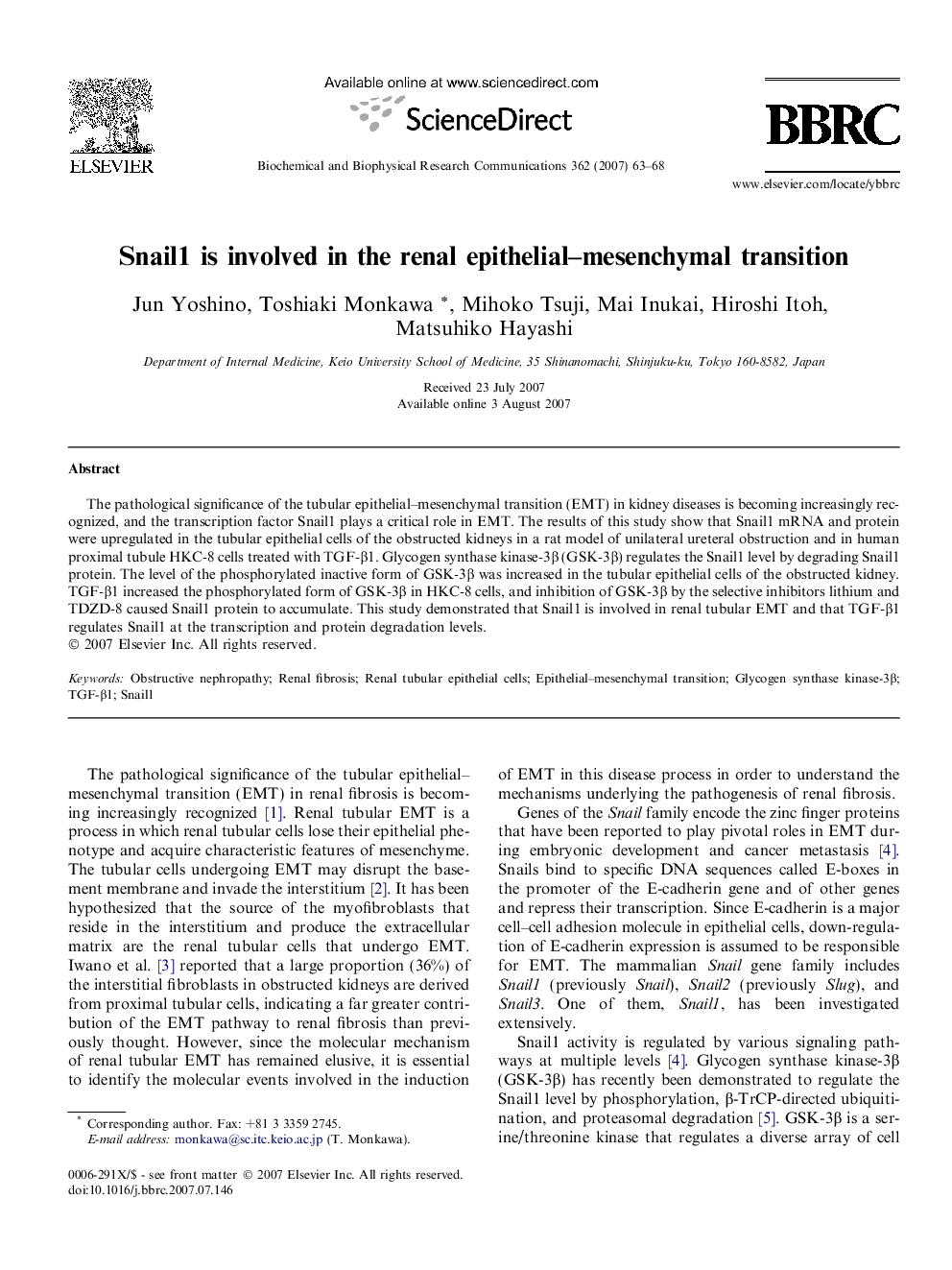| Article ID | Journal | Published Year | Pages | File Type |
|---|---|---|---|---|
| 1936474 | Biochemical and Biophysical Research Communications | 2007 | 6 Pages |
The pathological significance of the tubular epithelial–mesenchymal transition (EMT) in kidney diseases is becoming increasingly recognized, and the transcription factor Snail1 plays a critical role in EMT. The results of this study show that Snail1 mRNA and protein were upregulated in the tubular epithelial cells of the obstructed kidneys in a rat model of unilateral ureteral obstruction and in human proximal tubule HKC-8 cells treated with TGF-β1. Glycogen synthase kinase-3β (GSK-3β) regulates the Snail1 level by degrading Snail1 protein. The level of the phosphorylated inactive form of GSK-3β was increased in the tubular epithelial cells of the obstructed kidney. TGF-β1 increased the phosphorylated form of GSK-3β in HKC-8 cells, and inhibition of GSK-3β by the selective inhibitors lithium and TDZD-8 caused Snail1 protein to accumulate. This study demonstrated that Snail1 is involved in renal tubular EMT and that TGF-β1 regulates Snail1 at the transcription and protein degradation levels.
